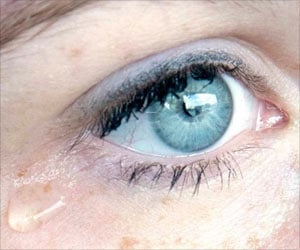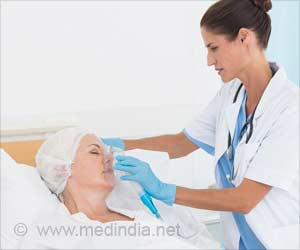Skin lightening creams containing steroids or hydroquinone are slammed by dermatologists as a real public health hazard.
Skin lightening creams containing steroids or hydroquinone are slammed by dermatologists as a real public health hazard, but there is no shortage in Senegalese markets where they continue to seduce clients.
According to a 2003 study by French and Senegalese dermatologists, the use of such creams is widespread among women in many Sub-Saharan African countries where an estimated 25 to 67 percent are regular users.For 20 years, Mrs. Diop faithfully applied lightening cream to her face every night before bed to make herself "prettier" -- until unsightly dark spots started appearing two years ago.
Fifty-year-old Mrs. Diop, who said she was too embarrassed to give her first name, had been warned of the risks but like many Senegalese women chose to ignore them.
"I liked lightening my skin because people say you look better, you're prettier like that," she said.
After her two-decade ritual, Mrs. Diop found it hard to stop, even when the spots appeared.
"To be able to stop I had help from a friend who supported me. Without her it would have been difficult," she said.
Advertisement
The creams are notably popular in Senegal's bustling capital of Dakar.
Advertisement
The cheapest, imported from Mali and Ivory Coast, sell for 500 CFA francs (75 euro cents/ one US dollar) but the high-end creams and lotions can cost as much as 25,000 CFA francs (38 euros/ 52 dollars) a bottle.
Mounass, 21, dressed in a hot-pink T-shirt and tight pants, browsed the stands to pick up a new supply.
She slathers herself in lightening cream twice a day and each month spends some 40,000 CFA francs, more than the Senegalese minimum wage, on the products "because men prefer women with fairer skin".
"I didn't know it was bad for my health," she said when asked about the potential risks, and happily left the market stall with several bottles.
While most of the labels boost a hydroquinone level of two percent in their lightening product, salesmen at Sandaga say it is "probably more like five percent".
The use of hydroquinone has been banned in the European Union since 2001 as a potential carcinogenic.
While Senegal bans the use of lightening creams for elementary and secondary school students, who run the risk of being expelled if they are caught using them, doctors say the sale of such products is not really monitored.
In her office in Dakar's Aristide Dantec Hospital, dermatologist Suzanne Oumou Niang told AFP that the use of skin lightening creams in the West African country "has been on the rise constantly since over a decade".
"These creams are sold freely while they should only be given on a doctors' indication for certain dermatological conditions," Niang said.
"The authorities should ban the sale of lightening creams and educate the people about the dangers of using this product," she said.
The dermatologist estimates that 60 percent of the severe skin infections she sees in her practice are linked to the use of the lightening creams.
"It has become a real public health problem.
"Women of all ages and of all social classes use the products because there are creams to suit every budget," she said.
A study in 2000 by a team of Senegalese scientists in two working-class neighbourhoods in Dakar showed that some 65 percent of women used the creams, dermatologist Fatimata Ly, who heads the Senegal-based International Association for Information about Artificial Depigmentation (AIIDA), told AFP.
The patients who consult dermatologist Niang often have acne, black spots and even abscesses from using the creams.
"The biggest risks are the severe skin infections usually caused by steroids, which can cause blood poisoning," she said.
The use of the steroid creams has also been linked to high blood pressure and diabetes, Ly added.
A 2006 study at the maternity unit of the Dakar Institute of Social Hygiene also showed that babies born to mothers who excessively used steroid creams had a lower than average birth weight, Ly said.
Like Mrs. Diop, however, many women develop what doctors call a psychological dependence on a product that helped boost their confidence.
A 2004 study by a team of Senegalese health professionals, including a psychologist, showed that many women equate lighter skin with being modern, seductive and of higher social standing.
"The women have the idea that if they stop using the products they will no longer be themselves," Niang said.
Mrs. Diop admitted she was surprised by unexpected compliments when she did finally stop.
"Everybody says I look younger even than my husband. My natural colour and skin tone are back."
Source-AFP
LIN














